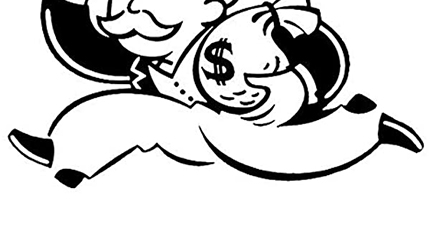There’s an Audre Lorde quote that I keep coming back to. I’m sure that you have heard the quote. “The master’s tools will not dismantle the master’s house.”
People have used this quote in all kinds of contexts to talk about all kinds of things. When Lorde was speaking, she was talking to a group of feminists at an academic conference. She was speaking against the exclusion of lesbians and Third World women by white women academics who turn feminism from a people’s movement into a paper publishing sport. She was criticizing the way that education is only seen as working in one direction, as assimilation, and that the broader feminism movement was not doing enough to educate themselves about Black women’s lives.
And she was speaking at the conference—a very generous act. She was educating. In a way, Lorde used the academic conference forum as a tool to uplift forms of education that were never nurtured by academia.
A lot of things are tools of domination. For example, the internet itself was created by the defense department so that militaries across the western world could connect to each other. Today, organizers use the internet to kickstart movements. The recipe for gunpowder was first recorded by daoist alchemists who were trying to create the elixir of eternal life. Back then, the quest for the elixir of immortality was a well funded one because the emperor was really interested in living a long life. Later, gunpowder was used to colonize, for genocide and for imperialism. However, gunpowder has also been used in armed resistance against colonialism.
I think about tea as well. Zhuge Liang used tea to colonize southern China. Pu’er was a cash crop for the state of Shu. Much later, tea was used in the ritual that we have come to call the Boston tea party. In the 1700s, the British were still getting their tea from China.
What were the tools that Audre Lorde referred to in her speech? When people of all kinds reflect on her words and speak them in various contexts, what tools are they referring to? What are the tools of domination?
Is tea a tool of domination? I sometimes drink pu’er tea but I also sometimes drink British or Irish tea from Trader Joes. Sometimes, I drink Japanese tea. I don’t own a gun but I grew up in a place where I was having to go to the shooting range all throughout elementary school to learn my way around a rifle. That was a crazy experience that I think about a lot. The instructor tried to scare us. He was telling us all these stories about kids who messed around with guns and ended up shooting their parents by accident because they forgot to follow safety procedures. I, for sure, was terrified. Imagine being around a bunch of elementary school age kids wielding guns and yelling at them to stop pointing at each other while the safety trigger is unlocked. To this day, guns make me feel out of control instead of in control. Maybe drinking tea does as well. I’m addicted to caffeine.
When we learn how to use these substances or tools, whose technologies are we learning? Who is producing these tools and does the act of using them for something their makers did not intend change them?
I think about gunpowder often. Gunpowder is a mixture of saltpeter, sulfur, and carbon. I see a lot of people around me debate the recognition of armed resistance. While armed resistance has always been part of resistance, I see more debates about the morality of gun use rather than the production of weaponry.
A lot of saltpeter has been mined out of Chile. Before Chilean saltpeter deposits were found and exploited, however, people were making it using poop and urine. They would make these big poop beds, keep it moist, and then extract the nitrates out. The confederacy made saltpeter using this method during the American Civil War. I’m guessing that the colonies used it too since John Adams asked his wife, Abigail, to make some for their war against the British. Today, saltpeter is used in meat processing as well as gunpowder production and poses a cancer risk.
Carbon is really just charcoal—burned wood. You make it by burning forests. Sulfur is mined. A lot of the sulfur that the British empire used for their guns seems to have come out of Sicily. The Sulfur War of 1840 was over rights to Sicilian sulfur. Guns as a typical commodity that anyone can buy in a Wal-mart feels very American. The Winchester house was built off of gun money. A lot of guns, like the Colt or the Smith & Wesson or the Glock or the Pistol, are household names.
What does it mean to produce a society that can manufacture gunpowder? What does that take?
I think about English too. I write in English and I speak it too but English isn’t my mother tongue. English was spread by the British empire and, today, remains the language of globalization. People have also done all kinds of brilliant decolonial research and thinking all in English. English itself is a twinned or double language. It used to be an old form of German but, after current day Britain was colonized by the Normans, it picked up a lot of French words because of the French speaking rulers.
What does it mean to produce a society that thinks, reads, and talks in English? What does that take?
I think that the recipe for gunpowder doesn’t look that hard. It’s the mining that’s really the issue because mining tends to create class society or caste (or, that seems to have been the case in the examples of mining societies that I have heard about and read about). English is harder. English was created through invasion and by doubling the consciousness. In a conquest kingdom, the boundary between the conqueror and the conqueror usually becomes blurred and thin because that boundary is temporally defined. The internet? What does it take to produce a society that maintains the internet?
Audre Lorde wrote that “the master’s tools will not dismantle the master’s house.” I interpret her words to mean that the solutions for colonialism are not found within colonial infrastructure. But colonialism invented nothing. It appropriated everything. History never invented anything. People invent things. We inherit these histories and that’s what we have to work with in a sense.
What would it mean to produce a society where gunpowder stops being gunpowder? Where English stops being English?
And, I know that there’s those of us that will just say—stop reading and writing and speaking in English. But English is also a powerful language. We are able to understand more about all those who share the burden of learning English when we learn to listen in English. Queer culture is not the only culture that likes to remix symbols of power for ourselves. We can do a lot using English and gunpowder and tea. Maybe. Only if we control the production of these tools for ourselves.
1 of 213
>>>


